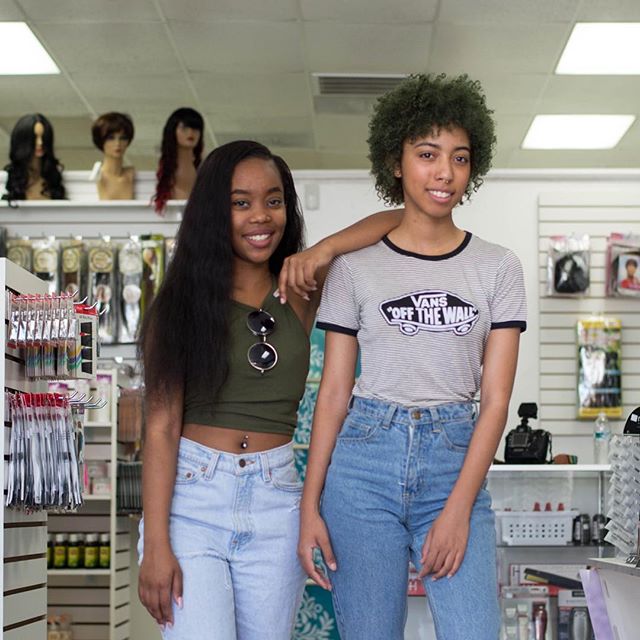
It’s no secret that black women have the most diverse and unique set of hairstyles known to man. A major reason for that happens to be the beloved beauty supply store, a mainstay in predominately black neighborhoods. It’s where black women get all of their well-needed hair products — from their hair for braiding to wigs and luxurious hair-flip-worthy extensions.
Yet, despite it holding such a crucial importance in our lives, there has been one unfavorable fact that has pervaded the black community for decades. Although black women are the main consumers, the majority of beauty supply stores in the United States are owned by Korean immigrants who have dominated the ethnic hair care market for years. Since the 1970s, Korean immigrants have had a monopoly in the beauty supply sector due to their close ties to hair suppliers and wholesalers based in South Korea. However, while that may be the reality right now, the landscape is quickly changing.
Following in the tradition of Madame CJ Walker — the iconic self-made millionaire and beauty mogul– contemporary female black entrepreneurs are taking back control by spearheading their own black beauty supply businesses at a growing rate.
The latest being Kayla Davis, 19, and Keonna Davis, 21, of Moreno Valley, California, who recently became the youngest black women in America to accomplish such a feat after opening KD Haircare Supply. Among them are a legion of other black business owners cashing in on this multi-billion dollar black haircare market. According to the Black Owned Beauty Supply Association (BOBSA), a consortium which was created in 2004 by Sam Ennon to tackle common issues facing independent black beauty supply owners. It goes without saying, these burgeoning moguls are at the forefront of a growing movement to take back economic power for the sake of their livelihoods and their communities.
Sisters Judian Brown, 35, and Kadeian Brown, 33, have firsthand knowledge of how significant it is to own a beauty supply store. They opened up Black Girls Divine Beauty Supply and Salon in Flatbush, Brooklyn approximately four years ago. From the onset, they were well aware of how lucrative the industry was and just how much black women spend on average for their hair maintenance. As Kadeian expressed during an interview with ESSENCE, black women “have the most power, we spend the most money, so why not spend it with our own kind to build [ourselves] up.” While the beginning stages of Black Girls Divine was an uphill battle since it was the first hair care business the two had opened together, it has proved worthwhile due to all the positive feedback and support they have received from other black women, and even some Korean vendors who have reached out to help since they are aware of their unique position in the market. Just like others in a similar position, through their joint business venture, they have become the drivers of their own financial future.
While there’s a lot to be said about the economic strength in black women owning and running their own beauty supply businesses, there’s also a huge cultural significance in who has ownership of these shops. By possessing businesses that they themselves frequent, black entrepreneurs are not only just showing off their business acumen, they are developing clout in a world which has excluded them for so long. As the ethnic hair care landscape continually changes, it’s likely in a couple of years that the black community will finally be able to proudly say black beauty supply stores serve us and are owned by us.